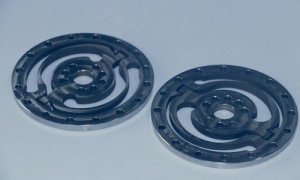Is there money in CNC machining?
Views: 963 Update date: May 23,2024
Yes, there can be substantial money in CNC (Computer Numerical Control) machining, given the right conditions and approach. CNC machining is a high-demand field due to its essential role in manufacturing and the production of precise components for various industries. Here are several factors that contribute to its profitability:
1. High Demand for Precision: Industries such as aerospace, automotive, medical devices, and electronics require highly precise components that can only be produced using CNC machines. This consistent demand drives business for CNC machining services.
2. Customization and Prototyping: CNC machining is integral for creating prototypes and custom parts, which are crucial for product development and innovation. Companies are often willing to pay a premium for these services to ensure quality and precision.
3. Scalability: Once a CNC machine is set up and programmed, it can produce large quantities of parts with minimal additional labor costs. This scalability can lead to high profit margins, especially for high-volume production runs.
4. Value-Added Services: Offering additional services such as design consulting, assembly, and finishing can increase revenue streams. Many clients prefer a one-stop-shop solution, which can lead to larger contracts and repeat business.
5. Technological Advancements: Investing in advanced CNC machinery and software can increase efficiency, reduce waste, and expand capabilities. This can differentiate a business from competitors and justify higher pricing.
6. Skilled Labor: Having skilled CNC operators and programmers can lead to higher quality outputs and more complex projects, which can command higher prices. The expertise in optimizing machine use and minimizing downtime directly impacts profitability.
7. Niche Markets: Serving specialized or niche markets can be very profitable. For example, custom machining for high-performance car parts or bespoke medical instruments can have less competition and higher margins.
Initial Investment: CNC machines and associated software can be expensive. High initial costs can be a barrier to entry and may require significant capital investment.
Competition: The CNC machining industry can be competitive, with many companies offering similar services. Differentiating oneself through quality, speed, and additional services is crucial.
Technological Upkeep: Keeping up with technological advancements and maintaining machines can be costly. Regular updates and training are necessary to stay competitive.
Market Fluctuations: Economic downturns and fluctuations in demand from key industries can impact business. Diversifying client bases and services can mitigate these risks.
Overall, while there are challenges, with the right strategies and focus on quality and efficiency, CNC machining can be a highly profitable business.
Prev: What is the most common machinable aluminum?
Next: What is the difference between high and low volume production?
1. High Demand for Precision: Industries such as aerospace, automotive, medical devices, and electronics require highly precise components that can only be produced using CNC machines. This consistent demand drives business for CNC machining services.
2. Customization and Prototyping: CNC machining is integral for creating prototypes and custom parts, which are crucial for product development and innovation. Companies are often willing to pay a premium for these services to ensure quality and precision.
3. Scalability: Once a CNC machine is set up and programmed, it can produce large quantities of parts with minimal additional labor costs. This scalability can lead to high profit margins, especially for high-volume production runs.
4. Value-Added Services: Offering additional services such as design consulting, assembly, and finishing can increase revenue streams. Many clients prefer a one-stop-shop solution, which can lead to larger contracts and repeat business.
5. Technological Advancements: Investing in advanced CNC machinery and software can increase efficiency, reduce waste, and expand capabilities. This can differentiate a business from competitors and justify higher pricing.
6. Skilled Labor: Having skilled CNC operators and programmers can lead to higher quality outputs and more complex projects, which can command higher prices. The expertise in optimizing machine use and minimizing downtime directly impacts profitability.
7. Niche Markets: Serving specialized or niche markets can be very profitable. For example, custom machining for high-performance car parts or bespoke medical instruments can have less competition and higher margins.
8. Cost Control: Effective management of operational costs, such as material procurement, machine maintenance, and energy consumption, can significantly affect profitability. Efficient operations often translate into better margins.
Initial Investment: CNC machines and associated software can be expensive. High initial costs can be a barrier to entry and may require significant capital investment.
Competition: The CNC machining industry can be competitive, with many companies offering similar services. Differentiating oneself through quality, speed, and additional services is crucial.
Technological Upkeep: Keeping up with technological advancements and maintaining machines can be costly. Regular updates and training are necessary to stay competitive.
Market Fluctuations: Economic downturns and fluctuations in demand from key industries can impact business. Diversifying client bases and services can mitigate these risks.
Overall, while there are challenges, with the right strategies and focus on quality and efficiency, CNC machining can be a highly profitable business.


